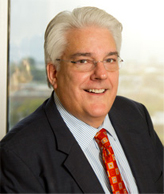© 2013 The Texas Lawbook.
By Mark Curriden
Senior Writer for The Texas Lawbook
Texas’ two U.S. Senators have named a 35-member commission to review and evaluate candidates interested in filling six open federal district judgeships and two openings on the federal circuit court of appeals.
The Federal Judicial Evaluations Committee, appointed by Senators John Cornyn and Ted Cruz, is stacked with high-profile Texas lawyers from the state’s largest and most prestigious law firms. New on the list, however, are six corporate chief legal officers or lawyers-turned-executives at JC Penney, Apache Corporation, Stroz Friedberg, Pride and Goldcrest Investments and Valley Baptist Health Systems.
The panel will advise the two senators regarding the qualifications of federal judicial candidates nominated by President Obama for federal judicial positions that are currently open or become open during the next four years.
“I expect this is going to start heating up because we have some judicial vacancies to fill,” says committee chairman David Prichard, a litigation partner at San Antonio’s Prichard Hawkins McFarland & Young. “Believe it or not, a lot of people want to be federal judges.”

“This process helps us get the best of the best,” he says.
Adds James Ho, an appellate law partner at Gibson, Dunn & Crutcher in Dallas, “Senators Cornyn and Cruz established this committee with one purpose in mind: to find the most talented legal minds and devoted public servants in Texas to serve in the crown jewel of the American legal system, the federal judiciary.”
Prichard, who served on the previous FJEC as established by Senators Kay Bailey Hutchison and Cornyn, says the senators traditionally announced when there’s an opening. Lawyers who are interested complete applications with the senators, who forward the information to the commission.
The committee examines all applications, takes an informal vote on the qualifications of the candidates and then submits those votes in the form of rankings to Senators Cornyn and Cruz, according to Prichard, who has served on the commission for 11 years.
The senators send back their top candidates for the committee to vet more thoroughly.
“We have six federal district court openings, including Article III positions in Sherman, Texarkana, Houston, Corpus Christi, San Antonio, Houston and Fort Worth,” says Prichard. “Previously, this committee has not been involved in the Fifth Circuit selections, but the senators have indicated that they would like the committee to be involved in those, too.”
The U.S. Constitution states that it is the duty and responsibility of the President of the United States to nominate people he wants to Article III judgeships and that the role of Senators Cornyn and Cruz is to advise the president on his selections and then either vote to consent or reject.
This committee, according to lawyers on it, helps the senators fill the role of advising the president. Political critics say that the committee is a way for the Republican senators to push President Obama to nominate more moderate judges.
Prichard says that having a Democratic president and two Republican senators doesn’t necessarily make the federal judicial selection process more difficult, but “it definitely makes it more challenging.”
The committee under Sen. Hutchison’s leadership had 30 members. Senators Cornyn and Cruz have increased that by five. About one-third of the committee members are holdovers from the previous FJEC. The press release issued by the two senators touts the committee as bi-partisan. About 10 of the 35 are either known Democrats or have ties to Democratic candidates.
Prominent Houston trial lawyer Steve Susman of Susman Godfrey is the only panelist who is a member of the Texas Trial Lawyers Association, and he represents corporate defendants and plaintiffs. There are no traditional plaintiff’s lawyers on the committee.
Here is a list of the lawyers selected to serve on the committee
|
Chairman – David Prichard (San Antonio, partner, Prichard Hawkins McFarland & Young) David Beck (Houston, partner, Beck Redden LLP) |
.
© 2013 The Texas Lawbook. Content of The Texas Lawbook is controlled and protected by specific licensing agreements with our subscribers and under federal copyright laws. Any distribution of this content without the consent of The Texas Lawbook is prohibited.
If you see any inaccuracy in any article in The Texas Lawbook, please contact us. Our goal is content that is 100% true and accurate. Thank you.
